Input interpretation

1-decene
Chemical names and formulas
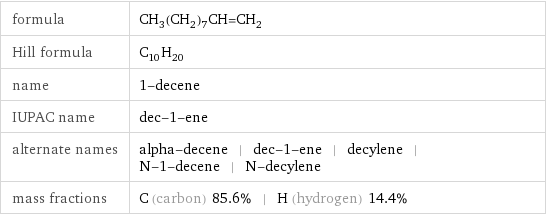
formula | CH_3(CH_2)_7CH=CH_2 Hill formula | C_10H_20 name | 1-decene IUPAC name | dec-1-ene alternate names | alpha-decene | dec-1-ene | decylene | N-1-decene | N-decylene mass fractions | C (carbon) 85.6% | H (hydrogen) 14.4%
Lewis structure
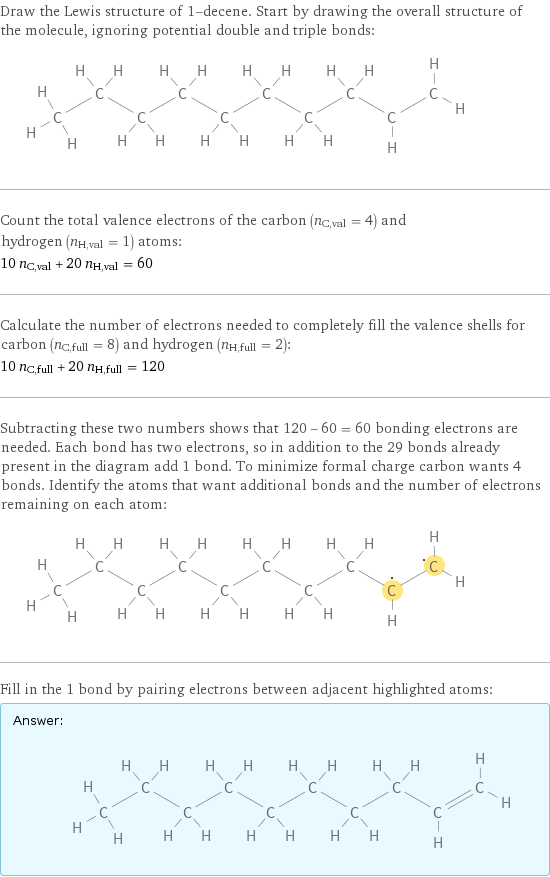
Draw the Lewis structure of 1-decene. Start by drawing the overall structure of the molecule, ignoring potential double and triple bonds: Count the total valence electrons of the carbon (n_C, val = 4) and hydrogen (n_H, val = 1) atoms: 10 n_C, val + 20 n_H, val = 60 Calculate the number of electrons needed to completely fill the valence shells for carbon (n_C, full = 8) and hydrogen (n_H, full = 2): 10 n_C, full + 20 n_H, full = 120 Subtracting these two numbers shows that 120 - 60 = 60 bonding electrons are needed. Each bond has two electrons, so in addition to the 29 bonds already present in the diagram add 1 bond. To minimize formal charge carbon wants 4 bonds. Identify the atoms that want additional bonds and the number of electrons remaining on each atom: Fill in the 1 bond by pairing electrons between adjacent highlighted atoms: Answer: | |
3D structure
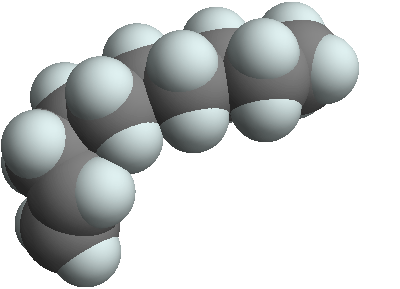
3D structure
Basic properties
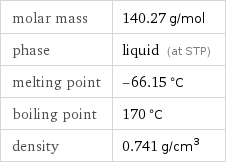
molar mass | 140.27 g/mol phase | liquid (at STP) melting point | -66.15 °C boiling point | 170 °C density | 0.741 g/cm^3
Units

Liquid properties (at STP)
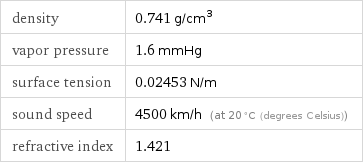
density | 0.741 g/cm^3 vapor pressure | 1.6 mmHg surface tension | 0.02453 N/m sound speed | 4500 km/h (at 20 °C (degrees Celsius)) refractive index | 1.421
Units

Thermodynamic properties
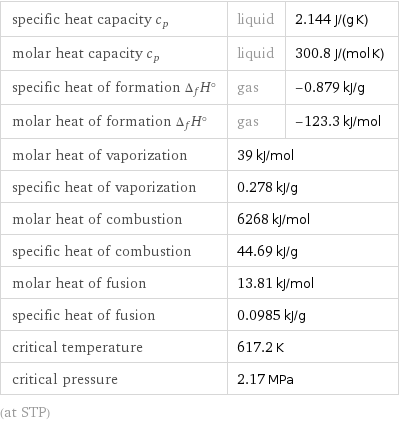
specific heat capacity c_p | liquid | 2.144 J/(g K) molar heat capacity c_p | liquid | 300.8 J/(mol K) specific heat of formation Δ_fH° | gas | -0.879 kJ/g molar heat of formation Δ_fH° | gas | -123.3 kJ/mol molar heat of vaporization | 39 kJ/mol | specific heat of vaporization | 0.278 kJ/g | molar heat of combustion | 6268 kJ/mol | specific heat of combustion | 44.69 kJ/g | molar heat of fusion | 13.81 kJ/mol | specific heat of fusion | 0.0985 kJ/g | critical temperature | 617.2 K | critical pressure | 2.17 MPa | (at STP)
Chemical identifiers
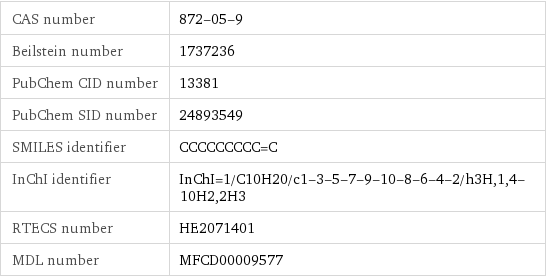
CAS number | 872-05-9 Beilstein number | 1737236 PubChem CID number | 13381 PubChem SID number | 24893549 SMILES identifier | CCCCCCCCC=C InChI identifier | InChI=1/C10H20/c1-3-5-7-9-10-8-6-4-2/h3H, 1, 4-10H2, 2H3 RTECS number | HE2071401 MDL number | MFCD00009577
NFPA label

NFPA label
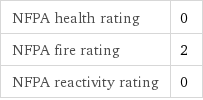
NFPA health rating | 0 NFPA fire rating | 2 NFPA reactivity rating | 0
Safety properties
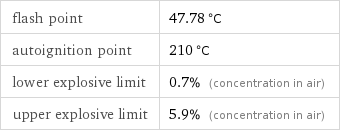
flash point | 47.78 °C autoignition point | 210 °C lower explosive limit | 0.7% (concentration in air) upper explosive limit | 5.9% (concentration in air)

DOT hazard class | 3 DOT numbers | 3295
Toxicity properties

RTECS classes | other